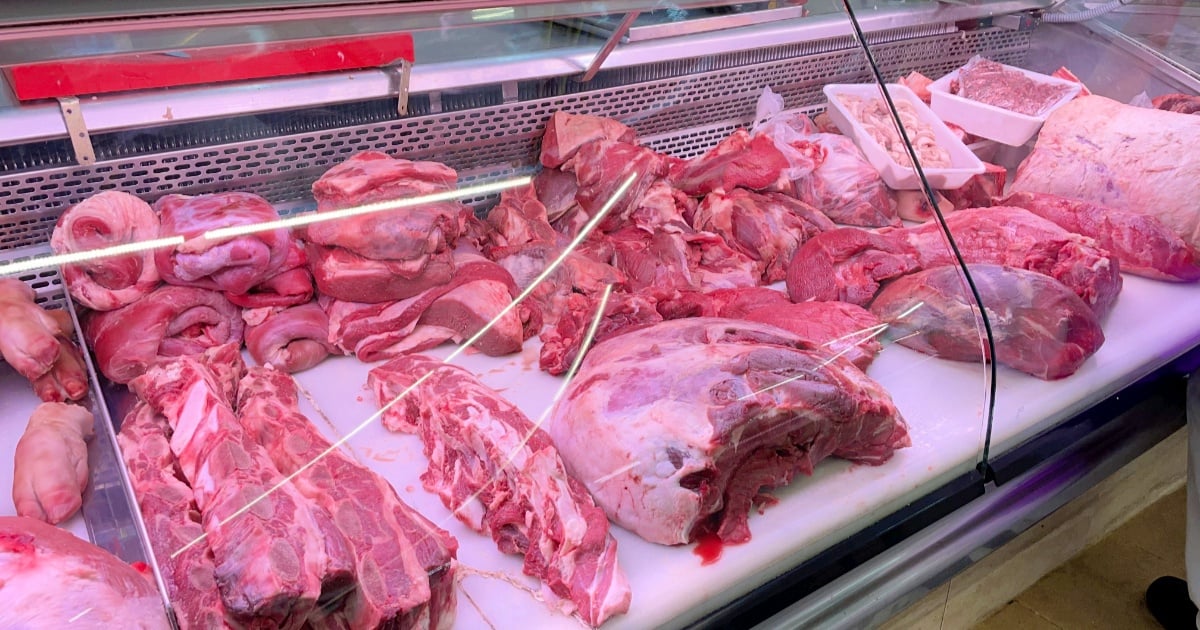
The Cuban government announcednew health regulations for the importation of products of animal origin, something that is essential for travelers to the island to be clear about in order not to suffer unexpected seizures at the airport when entering the country.
The new provisions have been established by the National Center for Animal Health (CENASA) of the Ministry of Agriculture (MINAGRI) of Cuba with the purpose of "protecting the national territory from the introduction and spread of diseases of animal origin subject to quarantine", according to the official statement.
The new regulations prohibit the importation of unpasteurized dairy products.Nor will it be possible to import meat that is not vacuum packed or that comes from wild fauna.
Apparently these new regulations will establish more rigorous controls not only for importers and suppliers from different countries, but also for travelers.
In addition to these control measures, the National Center for Animal Health also announced a series of products that may be imported.
However, the government agency announced that this list could change depending on variations in animal health conditions.
In September 2022, the Cuban government authorized travelers and natural persons toimport of fresh vacuum-packaged meats, among other food products, in the face of the serious economic crisis that has plunged the country into rampant inflation, with high prices, shortages and salaries that are devalued daily.
Almost a year later, in August 2023, the Cuban Ministry of Agriculture expanded the spectrum of food products that may enter national territory in the luggage of travelers and natural persons.
On December 31, the Cuban government announced thatwill extend the import until March 31 without commercial character, free of tariffs, food, medicines and toiletries, without limits on their value.
Below we transcribe the list of products of animal origin that are prohibited and allowed to enter the country.
Absolute import prohibitions:
1. Fluid milk and dairy derivatives in general NOT PASTEURIZED.
2. Fresh, frozen, dehydrated or salted meats, edible organ meats, semi-processed meat products (hamburgers, picadillos, meatballs, meat sticks, nuggets and other breaded products; raw sausages; salamis; spreads; raw ham, pepperoni and bacon raw, fermented, sobrasada, pepperoni, cervelat and other raw fermented products) and semi-cooked products that are not vacuum packed.
3. Fresh meats and their cuts with bone of any origin.
4. Meat of any species (except chicken) with bone of any origin, regardless of whether or not it has received any type of treatment for better preservation.
5. Meats from wild fauna in any form of presentation.
6. Chicken nuggets and other raw breadings (not fried)
7. Pet foods that contain ruminant flour in their protein base, regardless of the country of origin.
Import facilities:
1. Canned meat (canned) from bovine and porcine, duly identified and with recognized commercial brands, from countries that, due to their current zoosanitary situation and agreements established between Official Veterinary Services, are eligible for Cuba (France, Spain, Portugal, United States , Canada, Mexico, Panama, Costa Rica, Honduras, Nicaragua, Ecuador, Colombia, Brazil, Argentina, Chile and Uruguay)
2. Canned (canned) poultry meat, duly identified and with recognized commercial brands, from countries that, due to their current zoosanitary situation and agreements established between Official Veterinary Services, are eligible for Cuba (Spain, France, Dominican Republic, Honduras, Panama , Costa Rica, Nicaragua, Brazil and Uruguay)
3. Fresh, frozen, dehydrated or salted meats, edible organ meats, semi-processed meat products (hamburgers, picadillos, meatballs, meat sticks, nuggets and other breaded products; raw sausages; salamis; spreads; raw ham, pepperoni and bacon raw, fermented, sobrasada, pepperoni, cervelat and other raw fermented products) and semi-cooked, vacuum-packed products from cattle, pork, sheep and goats, duly identified and with recognized commercial brands, coming from countries that, due to their current zoosanitary situation and Agreements established between Official Veterinary Services are eligible for Cuba (France, Spain, Portugal, United States, Canada, Mexico, Panama, Costa Rica, Nicaragua, Ecuador, Colombia, Brazil, Argentina, Chile and Uruguay)
4. Fresh, frozen, dehydrated or salted meats, edible organ meats, semi-processed meat products (hamburgers, picadillos, meatballs, meat sticks, nuggets and other breaded products; salamis; spreads; semi-cooked, vacuum-packed products of poultry origin , duly identified and with recognized trademarks, from countries that, due to their current zoosanitary situation and agreements established between Official Veterinary Services, are eligible for Cuba (France, Spain, Mexico, Honduras, Panama, Costa Rica, Nicaragua, Brazil and Uruguay)
5. Sausages made from beef and/or pork. They are authorized on a temporary basis, from countries that, due to their current animal health situation and agreements established between Official Veterinary Services, are eligible for Cuba (Spain, Portugal, United States, Canada, Mexico, Panama, Costa Rica, Colombia, Nicaragua, Brazil, Argentina, Chile and Uruguay)
6. Sausages made from poultry. They are authorized on a temporary basis, from countries that, due to their current animal health situation and agreements established between Official Veterinary Services, are eligible for Cuba (Mexico, Honduras, Panama, Costa Rica, Colombia, Nicaragua, Brazil and Uruguay).
7. Seafood products (canned or not) originating from any geographic area.
8. UHT fluid milk, condensed, evaporated, and dairy desserts originating from any geographic area.
9. Powdered milk originating from countries that, due to their current animal health situation and agreements established between Official Veterinary Services, are eligible for Cuba (Spain, Portugal, United States, Canada, Mexico, Panama, Costa Rica, Nicaragua, Brazil, Argentina, Chile and Uruguay)
10. Pasteurized mature cheeses originating from any geographical area or made from ultra-pasteurized milk.
11. Non-commercial pet food that contains poultry, pork, fish and vegetables as a protein base (the traveler must consult in advance with the couriers listed below if entry from the country of origin of the product is possible). .
What do you think?
COMMENTFiled in: